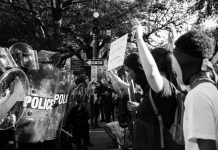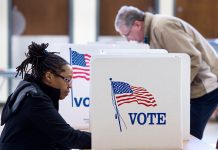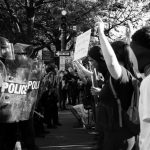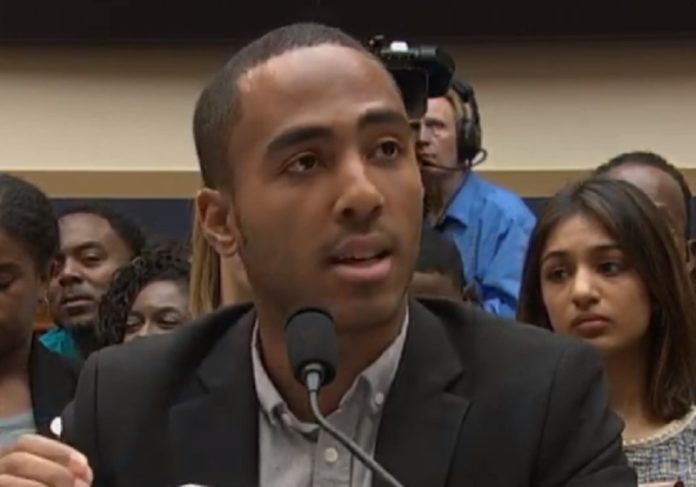
A congressional hearing went from calm to raucous in a matter of seconds after Quillette writer Coleman Hughes denounced a bill to study slavery reparations. When Hughes attacked the bill as “a moral and political mistake,” the floor erupted, with the hearing’s chair telling the audience to “chill” several times, Mediaite reports.
The hearing convened Wednesday by the House Judiciary Committee on the Constitution, Civil Rights, and Civil Liberties to discuss establishing a commission to study reparations and Hughes wasn’t the only notable witness to testify, BBC News reports. Actor Danny Glover also testified, telling the panel that reparations would be one way to cure “the damages inflicted by enslavement and enforced racial exclusionary policies.”
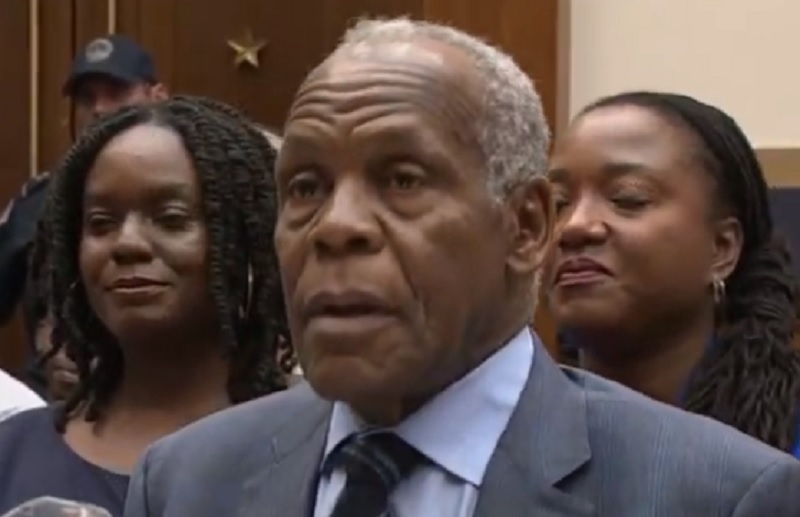
“A national reparations policy is a moral, democratic and economic imperative,” he said.
Writer Ta-Nehisi Coates, whose seminal work, The Case for Reparations, a 15,000-word cover story for The Atlantic sparked the debate also spoke, responding to Senate Majority Leader Mitch McConnell’s contention that no reparations bill will pass while he’s the leader of the Senate.
Quizzed by reporters Tuesday, McConnell said he doesn’t think reparations for something that happened 150 years ago are a good idea since those of us living today aren’t responsible for what happened. He added it would be difficult to know who to compensate.
“We’ve tried to deal with our original sin of slavery by fighting a civil war, by passing landmark civil rights legislation,” he said, noting “We elected an African-American president.”
“I think we’re always a work in progress in this country, but no one currently alive was responsible for that.”
Coates called McConnell out for his obvious hypocrisy.
“For a century after the Civil War black people were subjected to a relentless campaign of terror, a campaign that extended well into the lifetime of Majority Leader McConnell.”
And he chastised a country that has been reluctant to own up to these horrors.
“Enslavement reigned for 250 years on these shores,” he said. “When it ended, the country could have extended its hollow principles of life, liberty, and pursuit of happiness to all. But America had other things in mind.”
But it was Hughes testimony that really stirred up controversy. In his lengthy opening statement, he said he wasn’t trying to “minimize the horror and brutality of slavery and Jim Crow.” What bothered him the most was the U.S.’s failure to immediately make reparations to freed slaves after the war ended, something he said he feels is “one of the greatest injustices ever perpetrated by the U.S. government.”
His concerns were met with a solid round of boos from the audience, but even so, he continued.
“Black people don’t need another apology,” he said. “We need safer neighborhoods and better schools. We need a less punitive criminal justice system. We need affordable healthcare. And none of these things can be achieved through reparations for slavery.”
Hughes said people told him he shouldn’t testify, and the reason was a bit surprising.
“Nearly everyone close to me told me not to testify today,” he said. “They told me that even though I have only ever voted for Democrats, I would be perceived as Republican and therefore hated by half the country. Others told me that by distancing myself from Republicans, I would end up angering the other half of the country. And the sad truth is that they were both right. That’s how suspicious we have become. Of one another. That’s how divided we are. As a nation.”
Hughes also added that the idea of reparations is insulting to “many Black Americans” because it puts a price on their ancestors’ suffering. This would “turn the relationship between Black Americans and White Americans from a coalition into a transaction.”
And that’s not all, he said.
“Reparations, by definition, are only given to victims, so the moment you give me reparations, you’ve made me into a victim without my consent,” he noted. “Not just that, you’ve made 1/3 of Black Americans who poll against reparations into victims without their consent, and Black Americans have fought too long for the right to define themselves to be spoken for in such a condescending manner.”
The issue should focus more on what Americans can do for each other, because the measure, HR40 divides people rather than bringing them together.
“The question is not what America owes me by virtue of my ancestry, the question is what all Americans owe each other by virtue of being citizens of the same nation,” Hughes said. “And the obligation of citizenship is not transactional. It’s not contingent on ancestry. It never expires, and it can’t be paid off. For all these reasons bill HR40 is a moral and political mistake.”
That drew boos from the audience, forcing subcommittee Chairman Steve Cohen to bang the gavel several times, trying to shush the audience with “chill, chill, chill.” Hughes may have been presumptive, Cohen said, but he still has a right to speak.
And Hughes may well be right. We should do whatever we can to improve the lives of poor and disenfranchised Blacks. But simply throwing money at the obvious inequality in this country isn’t going to make it go away.
Featured image courtesy of the video above


